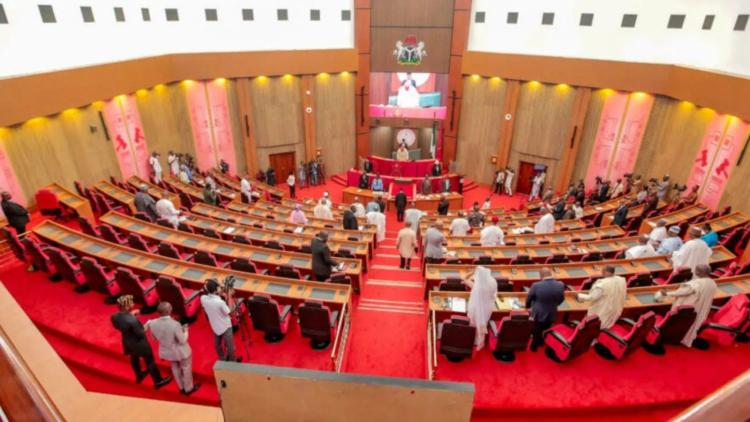The Nigerian Senate has passed the Electoral Bill 2025 for its second reading, advancing reforms to Nigeria’s electoral process. Senate President Godswill Akpabio announced the passage during Wednesday’s plenary, following a majority voice vote.

Sponsored by Senator Simon Lalong (APC, Plateau South), the bill seeks to replace the Electoral Act 2022, aiming to strengthen INEC’s independence, improve result transmission, and enhance election transparency.
During debates, Senator Adamu Aliero (APC, Kebbi North) called for clear provisions on electronic result transmission and stronger use of the Bimodal Voter Accreditation System (BVAS). Senator Orji Kalu (APC, Abia North) urged bipartisan collaboration for a transparent electoral system. Senator Tahir Munguno (APC, Borno North) advocated for transparent party primaries, reduced election spending, and measures against vote-buying.

Senator Agom Jarigbe (PDP, Cross River North) supported electronic result transmission and independent candidacy. Senator Olalere Oyewunmi (PDP, Osun West) called for harsher penalties for electoral offenders, including INEC and security officials. Senator Patrick Ndubueze (APC, Imo North) proposed announcing results within six hours of voting, while Senator Adams Oshiomhole (APC, Edo North) condemned politicians arming thugs to disrupt elections. Senator Seriake Dickson (PDP, Bayelsa West) suggested empowering INEC to determine election winners and curb political party excesses.

Senate President Akpabio noted improvements in electoral credibility since 2015 but emphasized the need for further progress. The bill was referred to the Senate Committee on Electoral Matters for review and a public hearing, with a report due in two weeks.
If passed, the law will introduce reforms like early INEC funding, inmate voting rights, mandatory early voting, and compulsory electronic result transmission.




